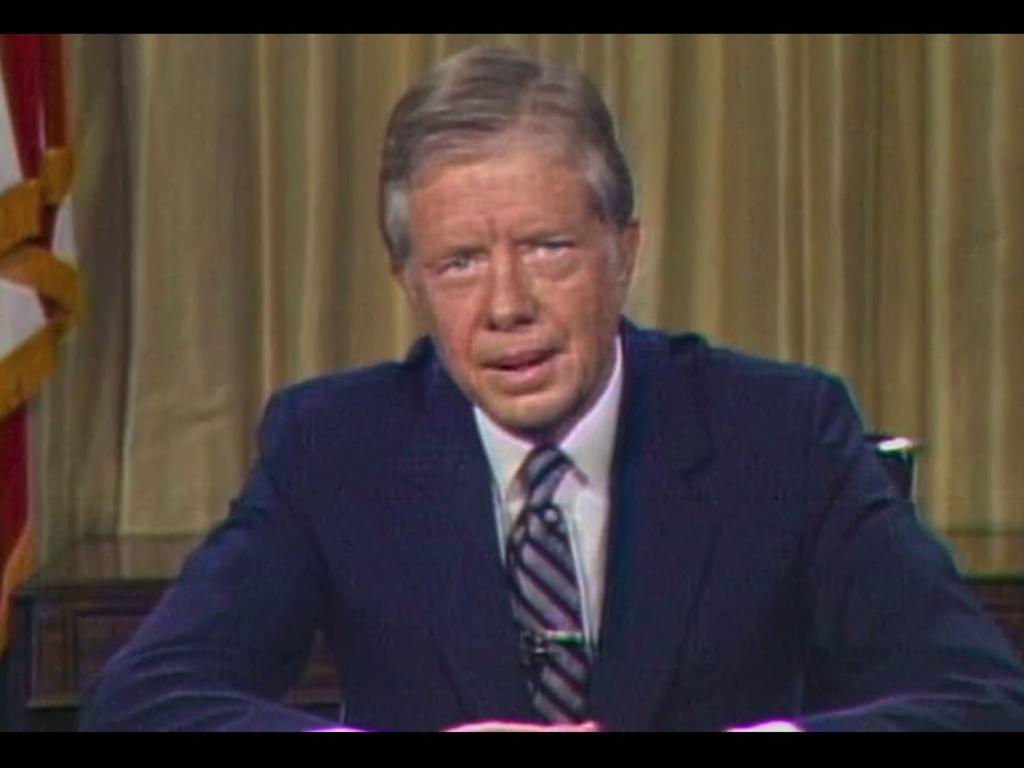Big questions unanswered in State of Union address

Choking off Russia’s access to technology would sap its economic strength and weaken its military for years. As Mr Biden said, Mr Putin “thought the West and NATO wouldn’t respond. And he thought he could divide us at home.”
Mr Biden made an important point when he said “throughout our history we’ve learned this lesson – when dictators do not pay a price for their aggression they cause more chaos. They keep moving. And the costs and the threats to America and the world keep rising.” He did not develop that thread sufficiently, unfortunately, although his reiteration that the US had mobilised ground forces, air squadrons and ship deployments to protect NATO countries including Poland, Romania, Latvia, Lithuania and Estonia in the event Mr Putin expanded his aggression was welcome. What was missing, however, was any vow that Russia would not be allowed to hold Ukraine, even if it captured its capital, Kyiv. Nor was there any warning to Mr Putin to desist from his inhuman merciless attacks on civilians or to avoid starving Ukrainians into submission. “This was not Harry Truman at the dawn of the Cold War calling the world to meet a new danger,” The Wall Street Journal noted.
Effective practitioners of statecraft plan far in advance, as Ronald Reagan did in envisaging the Soviet Union crumbling from within. In Mr Biden’s State of the Union address, Americans and the world needed to hear the President’s thinking about what would come next, to ensure that the eventual outcome of the crisis was brokered not by Mr Putin but by the US and its allies.
Mr Biden was correct when he said American diplomacy mattered and American resolve mattered. He and his advisers must be prepared to employ both for a long time, as secretary of state Henry Kissinger did almost a half-century ago during and after the Yom Kippur War in 1973. After the US supported Israel with arms – as Mr Biden and other Western leaders including Scott Morrison are doing to help Ukraine – Dr Kissinger helped arrange the ceasefire between Israel and Arab states, including Egypt and Syria. The key to the long-term outcome, however, was Dr Kissinger’s shuttle diplomacy in broking a settlement as a basis for Middle East peace, on terms supported by the US.
Delivered against the backdrop of the Ukrainian conflict, the State of the Union address was of even greater interest than usual in nations beyond the US. On the domestic front, as Mr Biden’s support is languishing in opinion polls, his Democrat colleagues were hoping for a boost ahead of the November midterm elections. Policy-wise, he rehashed his domestic agenda, appearing bereft of fresh ideas just 14 months into his term. Swinging voters will not be swayed by his enthusiasm for “environmental justice” and transgender equality – a nod to the left of his party.
Buoyed by applause, he appeared more energetic and engaged than usual, with only one very embarrassing slip-up – referring to Ukrainian people as “Iranian”.
The US economy, like many market economies, has bounced back well from the Covid pandemic, although tackling inflation, as Mr Biden said, is his main economic priority. Escalating energy prices as a result of the Ukrainian war will not help curb inflation. But Mr Biden was unaccountably confident that he could “cut energy costs for families an average of $500 a year by combating climate change”.
In so far as they are subsidised by taxpayers, Mr Biden’s spending plans, which he said were designed to reduce inflation, will not help his budget bottom line. He wants substantial reductions to the cost of childcare, pre-kindergarten for all three and four-year-olds, a doubling of production of renewable energy, lower prices for electric vehicles, more affordable housing, and to cut the cost of prescription drugs. However worthy, these goals, like his push to cut the cancer death rate by at least 50 per cent across the next 25 years, will depend on the best application of available, scarce resources and growing the economy to produce those resources.
Regardless of all the US has to gain from free trade, Mr Biden is not the first president to resort to populist, protectionist rhetoric. He did so to the extent that stamping products “Made in America” emerged as one of his economic sub-themes.
Mr Biden ended his speech with an unscripted rallying cry about Ukraine: “Go get ’em.” It drew bipartisan cheers and was more memorable than much else that he said. It is also the issue on which much of the world will judge his presidency.




So far as Joe Biden spoke on the subject of Ukraine, the US President’s first State of the Union address was adequate, and good in parts. The speech and the reactions of the assembled gathering left no doubt that the US is united behind Ukraine. The address contained little that was new on the subject, apart from the welcome news that the US was joining other allies in closing off its airspace to Russia. As Mr Biden said, the free world was united in holding Vladimir Putin accountable for his premeditated and unprovoked attack. The Russian President was more isolated from the rest of the world than ever. Russia’s largest banks had been cut off from the international financial system, rendering Mr Putin’s $US630bn ($869bn) “war fund” worthless.